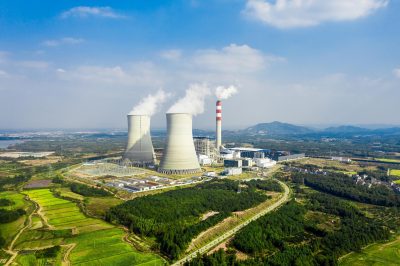
Hydrogen as an energy revolution
in industry and transport
Currently, the implementation of the construction of the JESS project “Hydrogen economy” in the location of EMPARK Trnava is underway as a pilot project for the production of hydrogen through a PEM electrolyzer with a capacity of 1 MW, the goal of which is the production of green hydrogen of the highest quality, intended for mass, suburban and freight transport vehicles as a tool for improving the quality of life environment in Slovakia, by reducing the burden of the emission footprint in transport.
The annual production volume of the project in the second stage is up to 160 tons of hydrogen per year. The stated amount of hydrogen, when used in suburban and urban bus mass transport, can ensure transport performance in the range of up to 1.3 million kilometers per year, which represents an annual run of up to 20 buses.
Pilot deployment of hydrogen technology in the Slovak Republic with the aim of contributing to setting the rules for permitting and placing these technologies in built-up areas. Build the basic structure of Slovakia’s infrastructure, necessary for the production and distribution of hydrogen, produced primarily from its own renewable sources of electricity (RES).
Building know-how in Slovak conditions for efficient production, storage and subsequent distribution of green hydrogen. The project in its final form and scope assumes an annual saving of up to 1,000 tons of CO2.

Key advantages of the hydrogen economy
for a sustainable future
Reduction of greenhouse gas emissions
The hydrogen economy provides a way to significantly reduce greenhouse gas emissions, especially if the hydrogen is produced from renewable energy sources. The use of hydrogen as a fuel in transport and industry can replace fossil fuels and significantly reduce carbon emissions.
Diversification of the energy mix
Diversification of the energy mix The hydrogen economy enables the diversification of the energy mix. Hydrogen can be used as a storage medium for excess energy from renewable sources, increasing their efficiency and reliability. This helps to smooth out irregularities in the supply of energy from renewable sources such as solar and wind.
Support for sustainable transport
Hydrogen fuel cells offer a promising alternative to fossil fuel-powered vehicles. Hydrogen vehicles produce zero emissions, and the only by-product of their operation is water. This can have a major impact on reducing air pollution in cities and improving air quality.
Support of sustainable industry
Promoting sustainable industry The hydrogen economy can also have a positive impact on industrial production, providing a clean fuel for processes that traditionally depend on fossil fuels. This can include steel and cement production, as well as other industrial processes that are significant sources of carbon emissions. The use of hydrogen in these processes can significantly contribute to the decarbonisation of industry.
5 reasons for the hydrogen economy
helps create a sustainable
energy future
A solution for low-emission energy
Support of renewable energy sources
A step towards cleaner mobility
Innovation and technological progress
Impact on decarbonisation
How it works
hydrogen economy?


